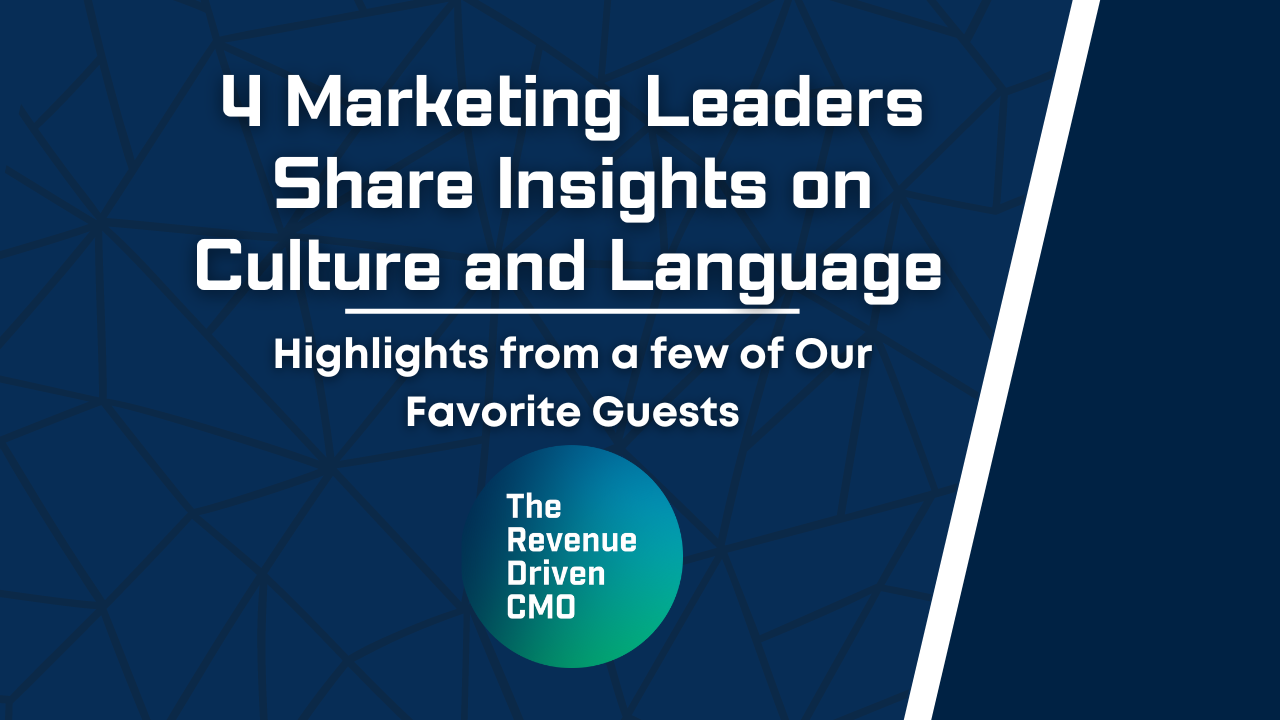Today’s guest has over two decades of experience in leading marketing and sales teams for some of the world’s most innovative technology companies such as Microsoft, F5, and SAP Concur.
David Alexander is the Chief Marketing Officer of Everbridge and Executive Professor and Head of Industry Insights at Texas A&M University.
Book a 30 minute call
Reserve 30 minutes with a strategist and get 30 hours worth of value.
David joins Host Chris Mechanic for a conversation on digital transformation, the importance of maintaining faith in the middle, and how to leverage industry relationships for successful leadership and project execution.
Takeaways:
- Acknowledging that you don’t possess all the solutions is crucial for effective leadership during a digital transformation. This creates an atmosphere of collective ownership and empowerment within the team. When leaders openly admit their limitations, team members feel more comfortable contributing their ideas and solutions.
- Remaining composed in the face of challenges is essential for leaders during a digital transformation. It’s easy for teams to become anxious when encountering obstacles or uncertainty, and a calm leader can help alleviate this anxiety. By projecting calmness, leaders can inspire confidence in their teams and prevent panic from spreading.
- Recognizing and celebrating small achievements along the transformation journey is vital. This practice fosters a positive culture that values progress, even if it’s incremental. When teams are encouraged to celebrate their successes, they are more likely to stay motivated and engaged, even when facing setbacks.
- To navigate a successful digital transformation, marketing leaders must continually assess the landscape for potential challenges. This involves staying informed about industry trends, market changes, and emerging technologies.
- By proactively identifying issues, leaders can take preventive measures and steer the transformation in the right direction. It also demonstrates to the team that leadership is vigilant and forward-thinking.
- Effective marketing leaders empower their teams by granting them the authority to make decisions and take ownership of their work. Providing team members with the tools and knowledge to make informed decisions fosters a culture of accountability and autonomy. Leaders must be willing to coach and support team members when they make decisions, whether they are successful or not.
- Leaders should prioritize clear and frequent communication to keep everyone on the same page. This is particularly important in geographically dispersed or remote teams. Regular updates, transparent discussions about progress and challenges, and ensuring that everyone understands the vision and their role within it are key aspects of effective communication.
Quote of the Show:
- “Always lead with data.” – David Alexander
Links:
Shoutouts:
- Lead Like It Matters by Craig Groeschel
- Measure What Matters by John Doerr
- The First 90 Days by Michael D. Watkins
Ways to Tune In:
Featuring:

David AlexanderCMO, Everbridge

Chris MechanicCEO & Co-Founder
Podcasts Info:
Categories:
Creative + UXMarketing
Most newsletters suck...
So while we technically have to call this a daily newsletter so people know what it is, it's anything but.
You won't find any 'industry standards' or 'guru best practices' here - only the real stuff that actually moves the needle.






